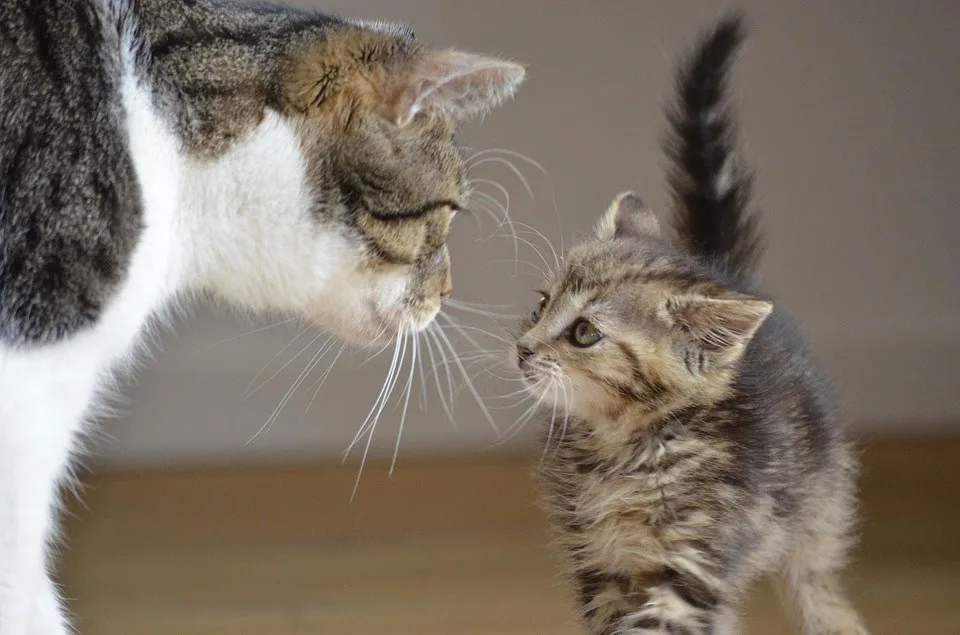
Getting a new pet can be an exciting time, whether it’s a new puppy, kitten or a rescue pet. Knowing how to calm new pets and reducing any stress is important to help maintain their health during this time.
Settling your new pet into their new environment is important and if you can calm new pets, it will help them settle in their own time.
Whether you have a new cat or dog, each animal is different and the process and time it takes to settle will differ. Cats in particular are territorial and may take longer, it’s important allow them the space and time they need.
To help there are some positive things you can do to help calm new pets, including:
Plan ahead
Get your house ready for your new pet before you bring them home. Make sure you have all the supplies you need for your new cat or dog to ensure the process runs smoothly. This includes the right food, bedding and any litter trays needed.
Pet proof your home
Make sure there are no areas where your new pet can escape. Block off any areas in the home you don’t want your pet to go. Keep doors and windows shut, to ensure that they don’t escape and get lost. Remove any hazards around the house, such as electrical wires, chemicals and plants that are poisonous to dogs and cats.
Litter trays for cats
Make sure your new cat has access to a litter tray in a place that is undisturbed, as they might feel nervous in the first few weeks. For multiple cat homes, be sure to supply a litter tray for each cat, as they are territorial and may not like to use the same one.
Keep cats indoors
Try to keep your cat indoors for the first few weeks to get them used to their new environment. If they go out too soon they might be confused and not be able to find their way back home if they get lost. They could also get into territorial fights with other cats in the neighbourhood, which could make them anxious.
Set up a safe area
Help to calm your new pet by creating a safe zone for them to retreat to should they get overwhelmed. This could be an area where they can sleep, make sure it is in a warm spot, which is close to food and fresh water. For a new dog, you could use a crate or cage, which he can also sleep in.
Stay calm
Although it’s an exciting time, too much noise can startle your new pet. Be sure to allow your new dog or cat the time to get used to other family members and pets in their own time.

Burn extra energy
A new dog can get excitable in a new environment and around family members. Take your new dog for long walks to burn off extra energy and ensure they sleep well in their new home.
Register your pet with a vet
Be sure to register your pet with your local vet. They will be able to give your new pet a full health check and offer advice with regards to vaccinations and flea treatment. This will also give you an opportunity to get your pet microchipped, which is a legal requirement for all pets and prevents them from getting lost if they escape.
Set up a routine
Get your new pet into a routine straight away to get them used to feeding and walk routines. This can help to reduce stress for your pet and will help them to fit around and get used to your lifestyle.
Slowly introduce them to other pets
If you have other pets, it’s important to ensure the introduction of a new pet goes well. To reduce stress to either pet, introduce new and old pets slowly to prevent any aggression.
Be patient
Give your new pet time to get used to you and their new home. Be sure to tell other family members to do the same, so that your pet can settle in their own time.
Don’t leave your new pet alone for too long
Separation anxiety in dogs is common. It’s recommended not to leave any pet alone for more than six hours a day. New pets could be feeling more anxious in their new home and need more attention in the first few weeks. Try to leave them alone for as little as possible – if you have to, start with short periods of time before working up to longer spells. Leave them plenty of toys to distract them and an item of your clothing to reassure your pet whilst you’re not there.
Speak to your vet about any of the above as they will be able to offer advice with regards to your new pet’s health needs. Ask your vet about Nutracalm, which is specifically formulated to naturally calm anxious pets and help to reduce unwanted behaviour.
Your vet may also recommend Nutramind, which is a high strength nutritional support for brain and mental function and can aid training and learning.
